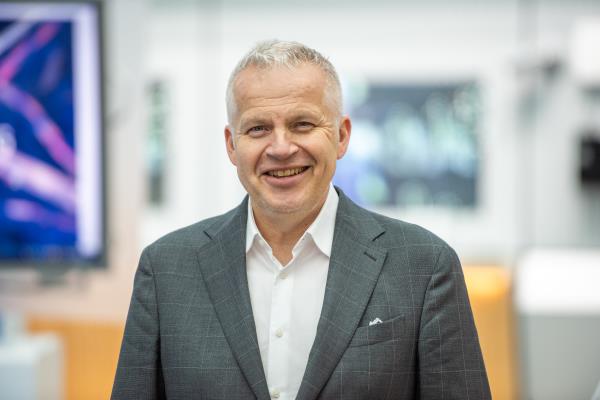08 May 2025
Mikko Lavanti, Nokia Mobile Networks SVP of Middle East and Africa
Fortunately, artificial intelligence (AI) is introducing new ways of overcoming these challenges, particularly in its optimisation of Radio Access Networks (RAN).
Unlocking value
Artificial intelligence (AI) in Radio Access Networks (RAN) has the potential to unlock impressive value across the African continent, particularly when it comes to enhancing mobile network operations and driving economic growth.
Combined, RAN and AI can help mobile network operators (MNOs) benefit from significant savings while overcoming key challenges in network optimisation, improving proactive problem detection, reducing downtime, and enhancing network performance.
These technologies, when looked at through the lens of Africa’s unique infrastructure challenges, dispersed populations, and the growing digital divide, offer a pathway to bridging the gap and potentially leapfrogging traditional infrastructure limitations.
Resolving energy challenges
One of the most pressing challenges on the continent remains access to reliable energy and many networks are still reliant on diesel generators to ensure uptime and service delivery.
AI-powered solutions are changing the narrative as they allow for networks to more intelligently manage their network resources. The technology can be used to switch off channels, turn-off layers and put radios to sleep when they’re not needed – reducing the load and optimising costs. As AI can understand specific traffic patterns of the network, it can discover hidden opportunities for applying energy saving features, reducing energy consumption by up to 40% without compromising on service quality.
In practice, this means networks can operate more reliably in off-grid areas and during power outages, both of which are critical capabilities in the African context. We have AI-based tools that can switch off the entire radio and then switch it on again in a few minutes, adapting usage to when you need it. It’s like a traffic light, controlling the flow of cars.
Optimising the network
Beyond energy efficiency, AI is transforming how operators manage and optimise their networks. Predictive maintenance and automated optimisation are particularly valuable in regions where physical access to infrastructure can be challenging.
At Nokia, the brain of our managed services is called Canopy, and runs on any cloud platform. It allows us to know in advance what the demand is and to crowdsource data so we can consistently manage energy levels and systems.
This approach has had very good results in the field. In Kenya, a proof of concept with an AI and machine learning (ML) solution reduced power consumption by approximately 50%, delivering substantial operational cost savings.
And this is not the only area where AI changes the story. With spectrum often scarce and expensive in Africa, AI tools are helping operators extract maximum value from their allocations. Network planning and optimisation tools leverage AI to analyse usage patterns and automatically adjust configurations.
Network planning and optimisation tools can be targeted to always look at the optimum use of your frequency. In Zambia, optimisation increased capacity by 30-40% more from the same spectrum resources. These tools can also identify leaking value or unsatisfied demand where prepaid customers cannot access services due to capacity constraints in certain areas, help operators to prioritise investments and improve customer experience as well as return on investment.
The technology is also only part of the solution. The human element is important as is the need for ongoing AI talent development. Africa has the potential to supply the global market with upwards of 10 million AI engineers - thanks to the huge youth population. What needs to happen is companies must support this growth through partnerships with private sector, governments and educational institutions. Already, there are training centres and integration labs across the continent in countries like Morocco, Ethiopia and Nigeria, but more must be done to put Africa firmly on the road to AI innovation and growth.
A paradigm shift
As hyperscalers expand deeper into Africa and mobile operators extend their coverage, AI-driven RAN solutions will play an increasingly important role in ensuring these networks deliver maximum value. The goal isn’t simply implementing AI because it’s on the hype cycle but using its intelligence to optimise limited resources.
AI in RAN represents a potential paradigm shift in how networks are planned, built and operated across the continent, giving them the capabilities and tools they need to step over the constraints that have traditionally held them back.







